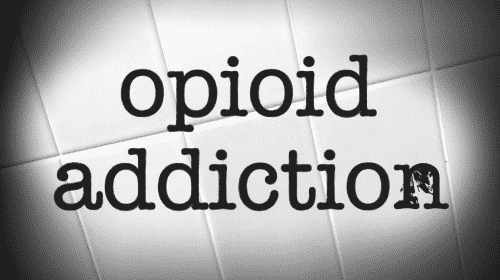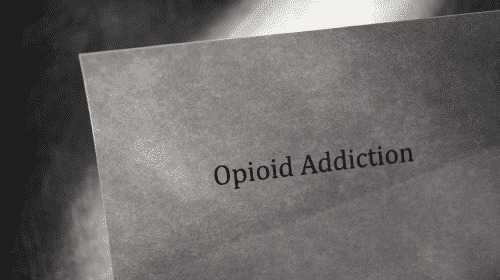Expert Insights
On Newtown Pike near Main Street in Lexington, there is a beautiful tribute project that allows people to honor and remember anyone who found themselves or a loved one shackled by the disease of addiction. Known simply as the “Locks of Addiction,” this simple gate started out with one woman seeking to remember her son who died from an overdose. Since then, the project exploded in popularity, with more than 200 Lexington locals coming out to add their own locks in remembrance of a loved one – or to remember their own battles with addiction. People have even taken to adding items that are much more personal than locks – some have added bracelets, hats, pictures, necklaces, and more. I think this is a lovely gesture, and a stark reminder, of how large numbers of people in communities struggle with addiction. And there is no need to struggle in silence.
~ Rita Milios
How Expensive is Drug Rehab in Lexington?
The costs of drug and alcohol rehab in Lexington can depend on factors including:
Inpatient/Outpatient
Amenities (such as private room or view)
Duration of treatment (30 or 90 days)
Individualized plan
Individualized plan
Payment
Location
Does Insurance Cover Rehab Center Costs?
Lexington detox centers and rehab facilities provide options to pay for drug and alcohol care. People without insurance may qualify for a subsidized plan, low-cost, or free options.
- Free clinics
- Medicaid/Medicare
- Government or publicly funded programs
- Nonprofit
- Sliding scale fees (based on the person’s income)
- Private insurance
- Self-pay or cash
Inquire about payment options before entering a treatment center.
How Does Lexington Compare in Alcohol and Drug Use?
Lexington is known for horse farms and thoroughbred racetracks like Keeneland. However, drug overdose deaths in Kentucky increased by 48% from 2019 to 2020, according to the Kentucky Injury Prevention and Research Center. In total, there were 1,958 people who died of drug overdoses in the Bluegrass State. Experts say fentanyl is the most common drug involved in fatal overdoses, while methamphetamine is the second most common. If you or someone you know is struggling with addiction, there are more than 40 accredited alcohol and drug rehab centers in Lexington.
The 2015-2016 National Survey on Drug Use and Health estimates that approximately 17,000 Kentuckians over age 18 have used heroin within the last year.
According to the 2018 Kentucky Treatment Outcome Study:

1,224 individuals enrolled in subsidized substance use rehabs between July 2015 and June 2016.1,2

46% of those admissions admitted to misusing opioids (other than heroin) in the 12 months before treatment.

25% of admissions reported misusing opioids (other than heroin) during the month before entering treatment.

14% reported heroin use within the previous 12 months, and 6% reported heroin use during the last month.
Kentucky Drug Climate
Although opioid use decreased in those seeking treatment, the opioid epidemic impacted other areas in Kentucky, particularly those residing in larger urban areas in Fayette County. For example, the number of people seeking treatment in a hospital for an unrelated reason, but diagnosed with an opioid use disorder, rose from 992 individuals in 2012 to 1,579 individuals in 2016.2
Drug and Alcohol Laws in Lexington
Kentucky Good Samaritan Law: Passed in 2015, Kentucky SB192 introduced The Good Samaritan Law as a response to increasing opioid use in Fayette County. The law protects individuals who call 911 to report an overdose. Acting as a Good Samaritan, the individual cannot be prosecuted if found with drug paraphernalia or a small amount of drugs for personal use. The law does not protect anyone with a large amount of drugs or those who manufacture, sell, or intend to distribute illegal substances.
Kentucky Government Treatment Bills: Kentucky law forbids people from participating in the manufacture, use, possession, or distribution of dangerous, habit-forming, or inappropriate drugs without a prescription. The law also provides a needle exchange program and permits certified pharmacists to dispense naloxone without a prescription.
Choosing the Right Level of Care
Research Lexington drug rehabs and what they offer before entering care. This includes learning about payment options for free care, Medicaid, or Medicare, sliding-scale fees, self-pay options, and private insurance. Levels of care vary but typically include:
Medical Detox
Withdrawal from alcohol, benzodiazepines, and barbiturates can be fatal. Opioid withdrawal can be excruciating. Trained staff typically performs detox in-house and supervises treatment 24/7.
Inpatient
Inpatient drug and alcohol rehab in Lexington requires you to stay at the center throughout your treatment, which can last 30, 90, or 180 days. Inpatient care starts with an intake session, documenting your substance use history, family history, and physical and mental health.6
Partial Hospitalization Programs (PHPs)
A PHP provides several hours of care five to seven days per week. This option meshes inpatient and outpatient treatment.
Intensive Outpatient Programs (IOPs)
An IOP requires hours of therapy up to five days a week.
Standard Outpatient
Standard outpatient programs are the least intensive options available to you. It takes just a few hours of care per week, often in a therapist’s office or at an outpatient clinic. This option is best if you have only a mild addiction and a strong and sober support system.
Medications for Opioid and Alcohol Addiction
You may require medicines for alcohol or opioid addiction. The Food and Drug Administration approves medications for these addictions. Medications include:8
Acamprosate: Acamprosate normalizes brain function and decreases cravings related to alcohol. It does not reduce or eliminate withdrawal symptoms.
Disulfiram (Antabuse): Disulfiram (Antabuse®) inhibits the metabolism of alcohol and causes an unpleasant reaction if you drink alcohol.
Naltrexone (Revia/Vivitrol): Naltrexone reduces alcohol-induced euphoria, taking away the physical high achieved by drinking alcohol. A rehab may prescribe additional mental health medications as needed.
Methadone: Methadone prevents withdrawal symptoms and reduces cravings by activating opioid receptors in the brain. It does not provide a euphoric high. It can be used during withdrawal and as long-term methadone maintenance.
Buprenorphine (Buprenex/Butrans): Buprenorphine eliminates withdrawal symptoms without producing a “high” or side effects of heroin and opioids. It can be used during withdrawal and in the long term to reduce the risk of relapse.
Suboxone (buprenorphine/naloxone): Suboxone combines buprenorphine and naloxone. Buprenorphine reduces cravings and eliminates withdrawal symptoms, while naloxone can deter misuse because it can cause precipitated withdrawal if someone injects it.
Finding Specialized Drug Rehabs in Lexington
People requiring drug and alcohol treatment do not fit into one category. They need care based on their history, family issues, substance use, and other unique situations. Types of rehabs include:
LGBTQ+
This rehab offers people a safe place for treatment while exploring challenges such as homophobia, discrimination, family acceptance issues, transphobia, and social exclusion.
Faith-Based
Faith-based programs offer a spiritual approach to addiction recovery, integrating prayer groups and literature studies into treatment plans. If your religion is important to you, you may want to consider finding a spiritual facility.
Men-only
These facilities focus on treatment for adult men and can focus on specific issues like stigma or emotional expression.
Women-only
Women-only rehabs provide care to women while providing a safe place to stay. This kind of program is especially beneficial for those who have suffered trauma or abuse (including sexual abuse) from a partner or loved one.
Teen
Teens need specialized therapies different from adults. These rehabs give teens a safe place to explore their issues and receive access to support.
Luxury
Luxury rehabs provide patients with a relaxing resort-like environment to jumpstart their addiction recovery. Every luxury program is different, but they typically provide upscale features, such as swimming pools, massage therapy, spa treatment, equine therapy, gourmet meals, and more.
Business Executive
Business executive rehab provides working professionals with the tools to continue working while in care. These typically offer upscale amenities, including workrooms, office space, office equipment, and high-speed internet.
Dual Diagnosis
Individuals with SUD could have co-occurring mental health disorders, such as posttraumatic stress disorder (PTSD), major depressive disorder, antisocial personality disorder, or bipolar disorder. A co-occurring disorder diagnosis, or dual diagnosis, requires comprehensive care to treat each issue fully.
How to Choose the Right Lexington Drug Rehab
Choosing the right Lexington rehabilitation therapy can affect the success of your treatment and recovery program. Everyone has different issues; therefore, choosing the appropriate program is vital to your success. You may prefer an outpatient program while someone else responds better to inpatient care. You may need a combination of inpatient and outpatient programs. There is no right or wrong answer; it should be based on what you need.
When choosing a Lexington drug rehab, consider the following factors:
Location: The location of your facility can be just as important to you as your type of care. Maybe you want to stay close to home. Perhaps the thought of being in a city or near a beach suits you. Some treatment centers have more than one location. Call and find out what options are available.
Outpatient or Inpatient: Some programs limit their plans to inpatient or outpatient services. Most centers offer a combination of inpatient and outpatient programs. Contact your healthcare provider if you don’t know what type of program is best for you.
Features and Amenities: While some people only want or need basic accommodation during care, others desire specific amenities to facilitate the process. These features may include gourmet meals, educational classes, spa and holistic treatments, massage therapy, acupuncture, yoga classes, exercise programs, private rooms, and swimming pools. Call the specific rehabs or detox centers in Lexington for information on a list of amenities and the costs associated with each.
Continuing Care: Follow-up care is a vital part of your recovery to ensure you stick with your program. Continuing care can take many forms, including ongoing physical therapy, mental health examinations, blood and urine screenings, support groups, education, and medications.
Cost: Costs can be prohibitive, especially if you don’t have insurance. When choosing between Lexington alcohol rehabs, calculate the total price and plan how to pay for it. Ask about funding options, including discounts, publicly-subsidized programs, government funds, or programs available through SAMHSA. In addition to private insurance, state-funded insurance, and Medicare, some treatment centers offer self-pay and payment plans.
Demographic-Specific Treatment: Some Lexington facilities focus on a specific demographic within the community. These programs help individuals who are often underserved and unable to afford care. Examples of demographic-specific programs include programs for children, adolescents, young adults, women, men, veterans, or LGBTQ + individuals.
Insurance: Find out what insurance your addiction treatment center accepts and if your insurance would cover your plan, including if the facility is within your network. Also, check if there is a co-pay or any additional expense.
Peer Support: Many people who have recovered from alcohol or substance abuse find that providing peer support helps them feel better. If you think a partner support group can help you, choose a Lexington drug rehab that combines partner support meetings with your plan.
Treatment Philosophy: Rehab is not a “one size fits all” solution. While some centers may provide primary medical care, others may focus on your belief system. Others may focus on location, age, sexual orientation, or other specific needs. Some centers offer a combination of customized options. The philosophy of treatment is particularly essential if you have a co-occurring diagnosis.
Family Visitation: If your family visits you during care, make it easier for them to travel with you. Check the rules for guests. Some facilities allow guests to stay all day. But most do not allow overnight stays.
Resources
- Kentucky Sees Significant Increase In Drug Overdose Deaths And Fentanyl-Involved Deaths | KIPRC. (n.d.). Kiprc.uky.edu.
- FindTreatment.gov. (n.d.). FindTreatment.gov.
- National Survey on Drug Use and Health (2021). National Survey of Substance Abuse Treatment Services
- Adult Kentucky Treatment Outcome Study – UK CDAR (2018) Extracted from PDF.
- Lexington-Fayette Urban County Government Department of Social Services (2018). Opioid Misuse Resource and Needs Assessment for Fayette County, Kentucky
- Lexington-Fayette Urban County Government Department of Social Services (2018). Opioid Misuse Resource and Needs Assessment for Fayette County, Kentucky
- National Institute of Drug Abuse (2022). Principles of Drug Addiction Treatment: A Research-Based Guide (Third Edition), Is Drug Addiction Treatment Worth its Cost?
- National Institute on Drug Abuse. (2020, September 18). Principles of Effective Treatment.
- National Institute of Mental Health. (2020). Prevalence of Any Mental Illness (AMI)
- Principles of Adolescent Substance Use Disorder Treatment: A Research-Based Guide Addiction Medications




